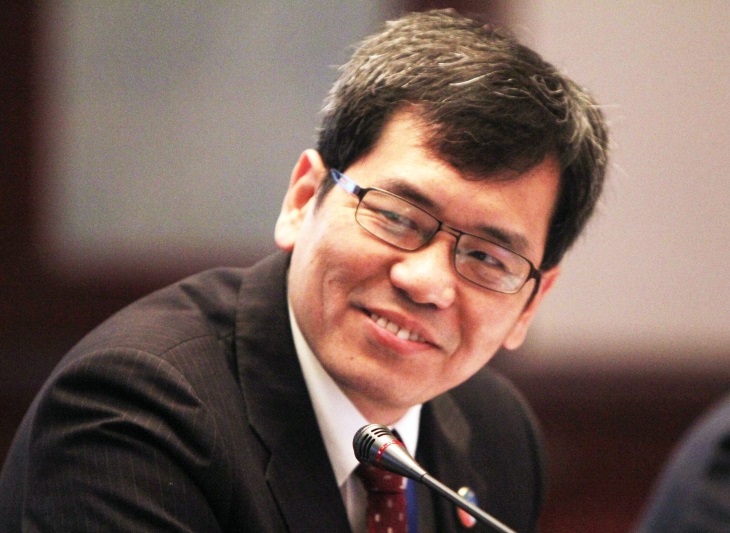Skills key to future regional growth

Enhancing labor skills as a key element for overcoming the middle-income trap in developing Asia-Pacific economies was proposed at an APEC policy dialogue held in Qingdao on Saturday.
Delegates discussed how developing economies stuck in the middle-income trap typically achieve initial growth by successfully mobilizing inputs based on low-cost advantages, but with rising costs and eroding competitiveness, they then fail to make the leap to the next phase of development.
“Building on APEC’s successful work over the years on economic integration, trade and investment liberalization and structural reform, APEC is well-positioned to help developing economies avoid the middle income trap and graduate into high-income status,” said Tan Jian, APEC Senior Official from China.
Policy ideas and analyses presented at the dialogue focused on innovative pathways for APEC emerging and developing economies to overcome this trap.
“Avoiding the middle-income trap is in essence, a test of an economy’s ability to innovate and upgrade,” said Professor Huang Yiping of Peking University.
“Successful economies such as Japan, Korea, Chinese Taipei, and Hong Kong, China, were all manufacturing-based economies that employed large numbers of workers during their early stages of development, although they went on different development paths once they reached the middle-income levels,” explained Professor Huang. “Early engagement in labor-intensive manufacturing development provided an opportunity for continuous on-the-job training and human capital accumulation.”
Dr. Alfred Schipke, Senior Resident Representative of the International Monetary Fund (IMF) for China, echoed the importance of human capital in ensuring continuous improvement in total factor productivity and driving technological progress.
According to Professor Huang, some economies ‘stuck’ in the middle-income trap relied heavily on a resource-based economy such as oil or agricultural exports for their initial growth spurt. This pathway did not provide the opportunity for human capital accumulation and on-the-job training. However, enhanced workforce education could help such economies overcome this barrier.
In addition to the shortage of available talent, other key barriers that prevent economies from climbing out of the middle income trap include the failure to implement structural reforms, growing income inequality, lack of adequate infrastructure and institutional gaps.
“APEC has set goals and made good progress on structural reform, connectivity, infrastructure and ease of doing business,” said Eduardo Pedrosa, Secretary General of the Pacific Economic Cooperation Council. “However, APEC could consider establishing an APEC-wide education initiative and targeted goals to address this middle-income challenge.”
Developing human resource talent and generating university-level graduates is a long-term goal that requires public investment early on during an economy’s initial growth stage, long before an economy reaches middle-income status. This could facilitate an economy’s transformation to the next stage of development towards an innovation and services-based economy.
“During the dialogue, APEC economies that have transformed to high-income status shared some of the ingredients of their success. Middle-income economies analyzed some of their challenges, providing a foundation for further discussion,” concluded Dr Alan Bollard, Executive Director of the APEC Secretariat.
# # #
For more details or to arrange possible media interviews, please contact:
Jennifer Juo +65 9721-8660 at [email protected]
Michael Chapnick +65 9647 4847 at [email protected]
Additional details about APEC meetings, events, projects and publications can be found on www.apec.org. You can also follow APEC on Twitter, Facebook and LinkedIn.

